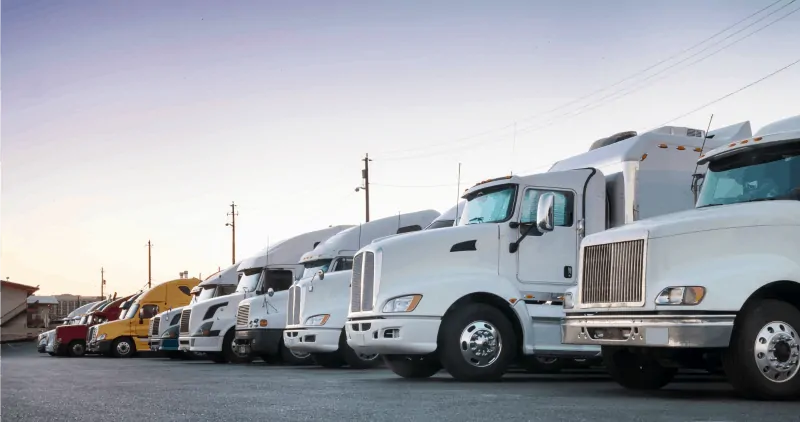
Factoring brokers will be of interest to carriers and independent owner operators.
Although there are significant benefits to financing accounts receivable, it’s important to understand the risks involved before deciding to utilize a factoring service for your trucking business.
The process is known as accounts receivable factoring, invoice discounting, inv. financing or invoice factoring. All of these terms mean the same thing.
An invoice factoring company essentially ‘buys invoices’ from carriers or truckers (who meet stringent credit standards) for a fee (ranges from 1.5 to 4%).
The broker then pays a substantial percentage of the inv. to the carrier or owner operator, within about 24 to 72 hours (rather than the industry standard of waiting for payment for up to 90 days+!)
Factoring is a solution
to a problem of slow paying customers
How Does Factoring Work?

- The carrier or owner operator delivers a load for their customer.
- The carrier or o/o, then gives an inv. copy to the broker.
- The broker then pays a percentage (approximately 75-90%) of the total invoice, to the carrier/o/o, usually within 24 to 72 hours. The balance of the inv. is held back, until the actual customer pays for the load that was delivered.
- When the customer pays, payment is made to the broker, not the carrier or o/o. The broker, then pays the carrier/o/o, the balance owing, minus the factoring company’s fee, which by the way CAN be HEFTY!!!
The Benefits of Utilizing Factoring Brokers
- Expedites cash flow as invoices are paid early.
- Cash flow is more controlled, more predictable. The carrier or trucker knows how much money to expect and when to expect it.
- Amount financed or factored, is directly related to sales. More business means more invoices, which can in turn be factored and turned into cash, more quickly.
- Fewer bad debts, as factoring companies carefully monitor credit profiles of shippers and customers.
When Should Invoices Be Factored?
Transport carriers, large or small, can find themselves in a position to consider factoring invoices.
If a carrier is experiencing a rapid growth spurt, fast cash is needed to meet the growth needs.
Fuel accounts, big rig truck payments, credit lines, truck repair and other critical expenses, must be paid sooner rather than later.
Many shippers and customers have the luxury of paying the carrier for their work, 60 to 90 days after the load is delivered.
Some are extra slow when paying their invoices, and even extend far beyond the 90 day period. Slow payment can deter the growth and stability of a business.
Factoring brokers will basically finance accounts receivable, so the cash be required to cover important expenses.
Don’t let the appeal of ‘fast cash’
overtake your common sense!
Risks of Factoring
Whether a trucking company or an owner operator who is a sole proprietor, are in a predicament where they are short of cash due to money mismanagement, hiring brokers who will factor their accounts receivable, will not be the long term answer to the problem.
The process MAY just prolong the inevitable. IF there’s little or NO funds from other inv. or accounts receivable expected.
In other words, LESS than what’s necessary to cover expenses, dealing with factoring brokers to speed up cash flow, is NOT a viable solution.
Depending on the factoring broker, there can be stiff costs involved when dealing with factoring companies.
The percentage charged may sound minimal, in terms of percentage, but when subtracted from the already stressed profit margin, it can mean the difference between ‘making it’ or ‘breaking it’.
BEST ADVICE ‘TO FACTOR OR NOT’?
- Factoring makes sense when it’s part of a short term plan
- Only use the process if absolutely necessary.
- It is not the solution to POOR FREIGHT RATES, not is it the answer to poor money management.
- This process is not the answer to improve your profit margin. It COSTS money, it won’t MAKE money.
Where Would You Like to Go Next?
- Success Tips for Owner Operators
- What You Need to Know About Owner Operator Vs Company Driver Jobs
- Best Truck For an Owner Operator
- 10 Point Checklist To Determine If You’re Ready To Be an Owner Op.
- The Biggest Mistake Owner Ops Make







